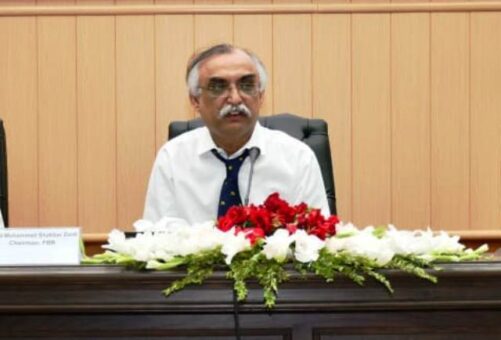ISLAMABAD: Federal Board of Revenue (FBR) has issued fresh list of sectors to allow input adjustment by amending the Section 8B of Sales Tax Act, 1990.
The FBR issued SRO 1190(I)/2019 on Thursday in suppression of its previous SRO 647(I)/2007 dated June 27, 2007.
The following sectors have been allowed input adjustment and refunds:
01. Persons registered in electrical energy sector.
02. Oil marketing companies and petroleum refineries.
03. Fertilizers manufacturers.
04. Persons making zero-rated supplies, including exports, provided that value of such supplies exceeds 50 percent of value of all taxable supplies in a tax period.
05. Distributors.
06. Gas distribution companies.
07. Telecommunication services.
08. Pakistan Steel, Bin Qasim, Karachi.
09. Registered persons other than manufacturers, making supplies of items covered under the Third Schedule to the Sales tax Act, 1990, on which sales tax has been paid by the manufacturer or importer on retail price, provided that value of such supplies exceeds 80 percent of value of all taxable supplies in a tax period.
10. Commercial importers where value of import subject to 3 percent value addition as prescribed in Twelfth Schedule to the Act exceeds 50 percent of value of all taxable purchases, including imports, in a tax period.
Through the latest SRO the retailers also importing goods in bulk and operating chain stores have been allowed adjustment of input tax to the extent of 95 percent of the output tax for the tax period and the excess amount shall be carried forward to the next period.
The FBR further said that the first proviso of sub-section (1) and sub-section (2) and (3) of Section 8B of the Sales Tax Act, 1990, shall apply, mutatis mutandis, to the input tax to be adjusted or carried forward as provided in clause (b).



